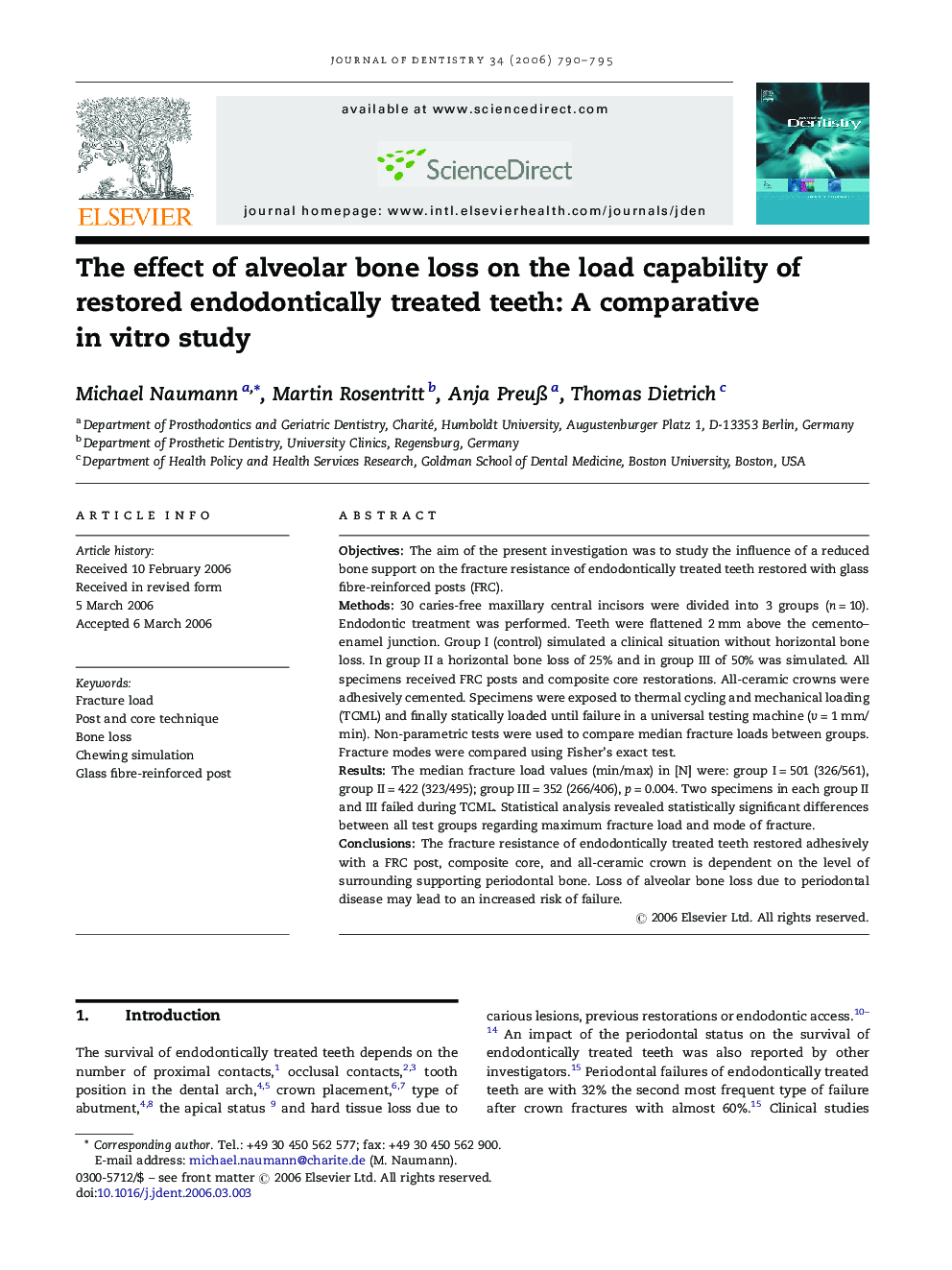| Article ID | Journal | Published Year | Pages | File Type |
|---|---|---|---|---|
| 3145770 | Journal of Dentistry | 2006 | 6 Pages |
ObjectivesThe aim of the present investigation was to study the influence of a reduced bone support on the fracture resistance of endodontically treated teeth restored with glass fibre-reinforced posts (FRC).Methods30 caries-free maxillary central incisors were divided into 3 groups (n = 10). Endodontic treatment was performed. Teeth were flattened 2 mm above the cemento–enamel junction. Group I (control) simulated a clinical situation without horizontal bone loss. In group II a horizontal bone loss of 25% and in group III of 50% was simulated. All specimens received FRC posts and composite core restorations. All-ceramic crowns were adhesively cemented. Specimens were exposed to thermal cycling and mechanical loading (TCML) and finally statically loaded until failure in a universal testing machine (vv = 1 mm/min). Non-parametric tests were used to compare median fracture loads between groups. Fracture modes were compared using Fisher's exact test.ResultsThe median fracture load values (min/max) in [N] were: group I = 501 (326/561), group II = 422 (323/495); group III = 352 (266/406), p = 0.004. Two specimens in each group II and III failed during TCML. Statistical analysis revealed statistically significant differences between all test groups regarding maximum fracture load and mode of fracture.ConclusionsThe fracture resistance of endodontically treated teeth restored adhesively with a FRC post, composite core, and all-ceramic crown is dependent on the level of surrounding supporting periodontal bone. Loss of alveolar bone loss due to periodontal disease may lead to an increased risk of failure.
